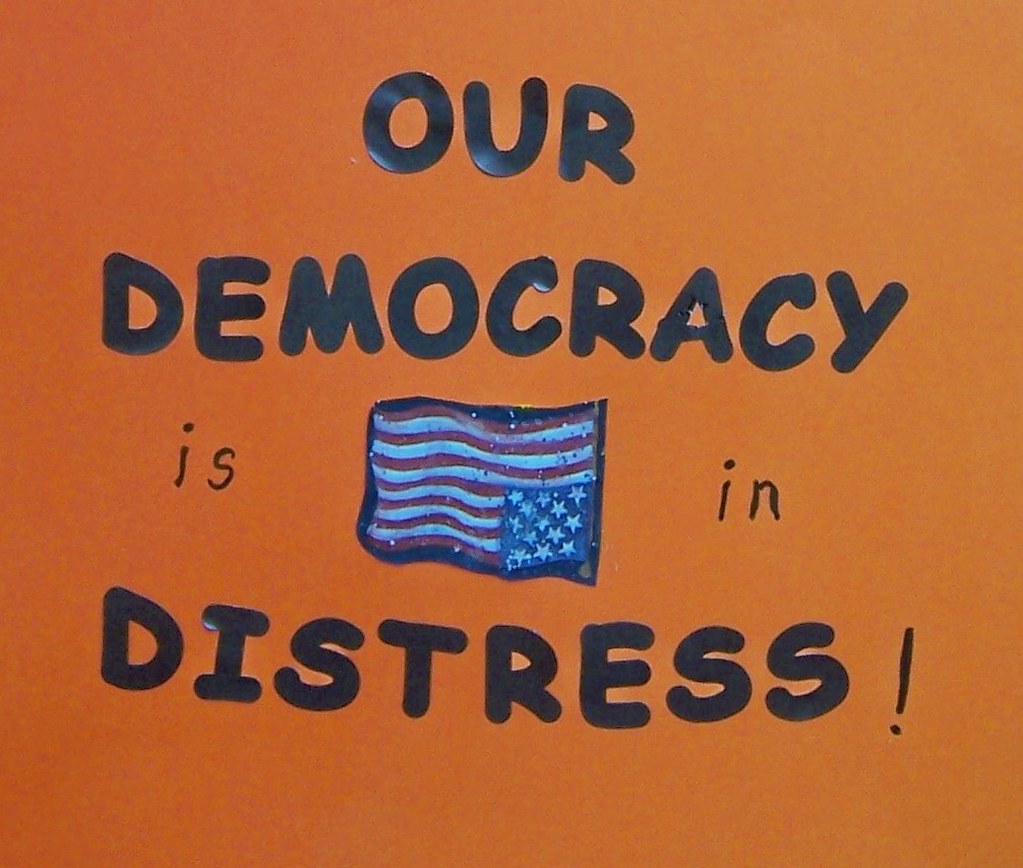Opinion: The Culture Wars Come to Amherst

Photo:flckr.com

Amherst has never been short on a supply of opinionated, vocal people, but lately the tone of debate on issues has gone from spirited to dispiriting. This is a sad reflection of the trajectory of politics nationally, and it is a deeply troubling development for our town, our country and for democracy. We The People need to pause, analyze what democracy is, what responsibilities citizens have in a democracy, and identify the factors currently working at cross-purposes to it.
To borrow from Wikipedia, “Features of democracy often times include freedom of assembly, association, property rights, freedom of religion and speech, citizenship, consent of the governed, voting rights, freedom from unwarranted governmental deprivation of the right to life and liberty, and minority rights.” Laws must be clearly defined and equally applied to all, and suspected or alleged violations of the law must be fully and fairly investigated, and adjudicated violators must be uniformly sanctioned or punished. Association – either in person or on line – must be free of physical and psychological obstructions. Religion, the underpinning of people’s psychological and spiritual well-being, is a deeply personal choice, and cannot be abridged or imposed. Speech may be spirited, sometimes even painful or aggravating, but must never endanger individuals. Consent of the governed must rely on informed, reasoned debate, a willingness to accept that one’s personal views may not be on the ‘winning side’, and can never be coerced. These are the foundation of democratic rule, and they are being eroded.
With the right to democracy, there are responsibilities that go beyond turning out to vote. Debate, a cornerstone of democracy, requires the recognition of a common set of facts. There are no ‘alternative facts’, there are facts, there are unknowns, and there are fictions, AKA lies, when fictions are used to distract from or supplant truths. Facts can be stubborn to root out. They may be inconvenient or distressing, but they must have everyone’s allegiance. Citizens need to be engaged and informed. This requires courage, effort and time, and the more ‘messed up’ things are, the more courage, effort and time are required. Democracy is not easy or neat, and pulling away from it because it is hard and messy is the first step toward authoritarianism. Trudging out to vote every couple of years is not sufficient. And there must be a recognition that we, as adult individuals, will not always be on the winning side, but must accept the fact that sometimes we win, and sometimes we lose, and the fight goes on.
What is poisoning our democracy? Taking it for granted is highly toxic. The politicization of fact sources is a process that can enhance the bottom line of web, broadcast and print journalism, but at the expense of truth and, thereby, democratic debate. Advertisers don’t want their products promoted by media that might offend consumers, so most outlets pick a target audience and tailor what they disseminate so as to avoid offending their customers. Single issue voting and cults of personality are antithetical to democracy. The accelerating tendency to equate differences of opinion with moral turpitude is driving binary tribal politics to a fugue state in which the “us and them” mentality is literally threatening our peaceful coexistence.
What can we do? Winston Churchill once said that, “The best argument against democracy is a five-minute conversation with the average voter”. We need to stop being “average voters”. We must be willing to ferret out facts, a process that often involves time and effort, and sometimes pain, when the facts run contrary to our preconceived ideas or come from sources that do not align with our interests. We must recognize we are not always right, and remain open to changing our opinions. We must be fearless in expressing ourselves, and measured enough to do so civilly, especially in the face of opposition. Forceful expression of opinion is not “bullying”, so long as the debate remains civil and centered on the issues, not the people giving voice to them. To be sure, all this has not been made any easier with the rise of “social media”, with algorithms designed to feed us “news” and opinions that are one-sided and inflammatory. The web has enabled us to search out facts, but it can also inundate us with misinformation, disinformation and distractions that drain our attention from pressing matters at hand. In short, we must participate by being diligent, focused, brave, and adaptable. We must aspire to be our ‘best selves’
Whether the voters in Amherst and the nation can rise to the challenge of being our best selves remains to be seen…

Thanks for taking the time to write that.
Deborah Arak
Amherst is a sad place where if you disagree with some you are attacked. I am glad I left.
Robert Thrasher